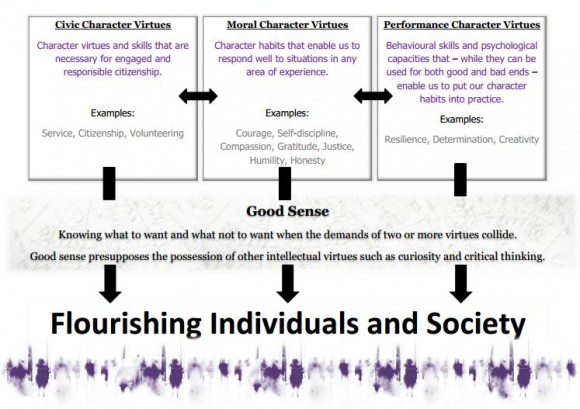In previous posts I shared my understanding of the four character domains and unqualified understanding of phronesis or judgement. Alternatively, character wisdom is more important than developing intellectual, moral, civic or performance virtues.
After the first few sessions of the Future Learn course, I am beginning to realise that developing good character is important, however development character wisdom or phronesis, is more important. 
There is no simplest list of the virtues which make up good character; there can not be. There maybe common virtues but even the virtue of honesty, so highly valued by the online single hearts, will be tested by that relationship wrecker, “Does my bum look big in this dress?” Not discounting the influence of developmental stage, social and personal circumstance. Of course as a teacher within a MAT, looking to promote Character – I am very interested in learning more about the impact of development stage on virtue acquisition and practice. Certainly, I am aware of a few senior friends and family becoming more direct and a former colleague who had battled and overcome a personal illness certainly no longer had time for courtesies.
Let assume we have developed students or character. Kristján Kristjánsson advises that intellectual and performance traits need to be mediated by moral concerns. Otherwise, they can turn from virtues into vices (the repeat offender). He advises that virtues need to form a coherent, balanced, and “mutually supportive whole.” Second, Kristjánsson suggests the test lies not in assessing black or white but varying shades of grey; in assessing two good answers where two or more virtues collide. Integrating such demands into an acceptable course of action. For these reasons he positions that successful character education needs to be about “the proper integration of the virtues guided by the overarching intellectual virtue of good sense.”
That is before we have had chance to consider the motives, whether of intrinsic or instrumental value? An unavoidable question for education, school leaders and teachers.
For the development of The Wellington Academy Diploma, I am interested in learning more about the developmental influence on the adoption of virtues. How these may fluctuate from Primary school age through to our 6th Form.
[qr_code_display]


